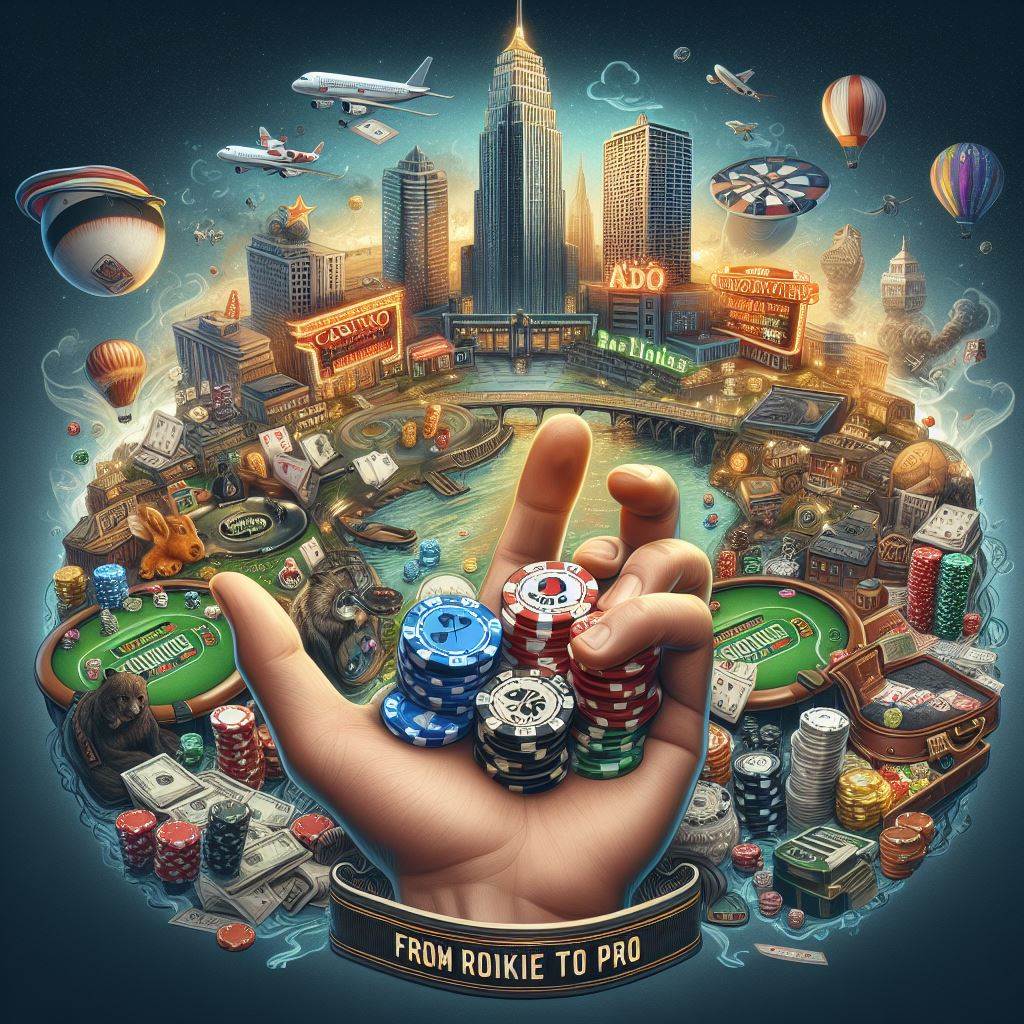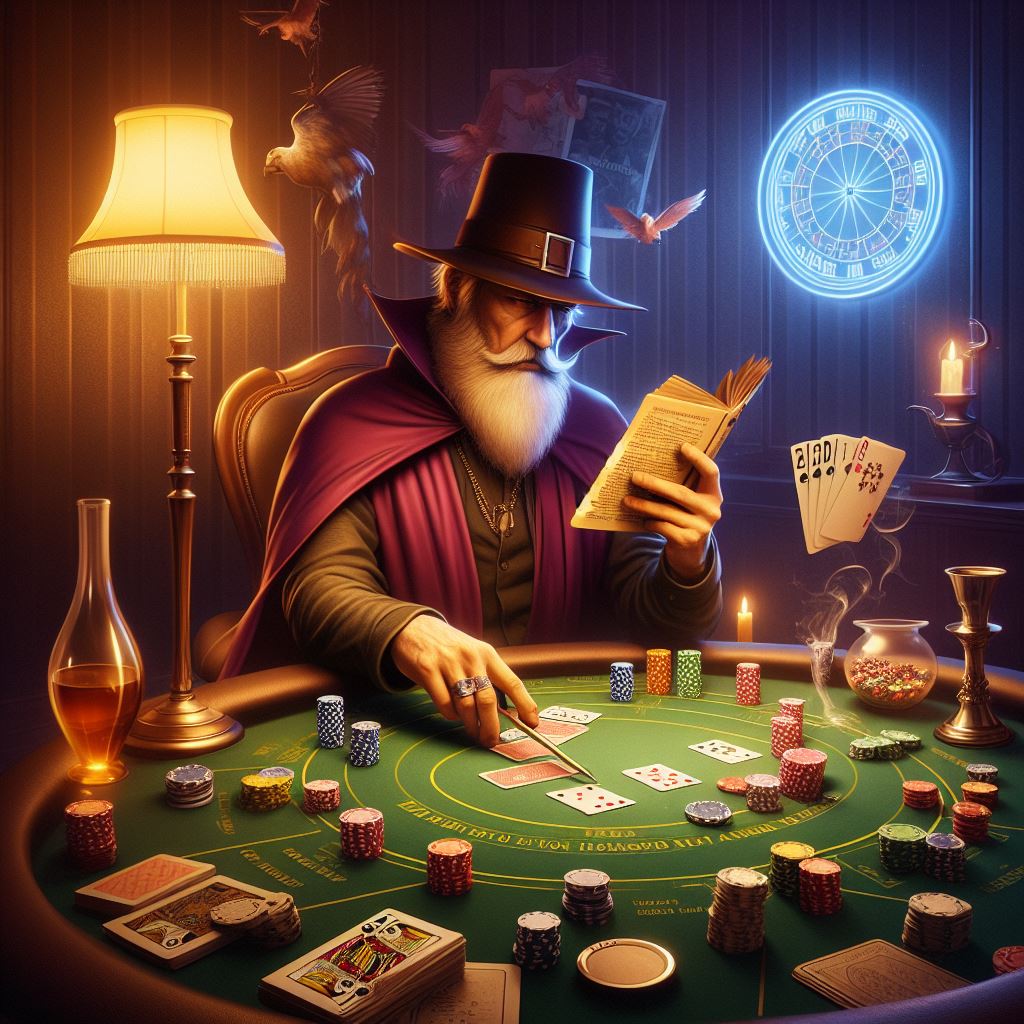Embarking on the path from poker novice to seasoned professional is a thrilling adventure filled with ups and downs, strategic learning, Journey Through of Casino and personal growth. This article takes you through the transformative journey of evolving from a poker rookie to a pro, offering insights and guidance for navigating the complexities of casino poker.
Starting Out: Learning the Basics
The first step in any poker player’s journey is understanding the fundamentals of the game. This includes learning the rules of different poker variants like Texas Hold’em, Omaha, and more. It’s crucial to grasp the hand rankings, the structure of betting, and the phases of play. Beginners should start with low-stakes games, which provide a practical learning environment with minimal financial risk.
Enhancing Skills with Strategy
Once the basic rules are mastered, the next phase is to dive deeper into strategy. This involves understanding when to bet, call, raise, or fold. Rookie players must develop an awareness of the mathematical side of poker, which includes odds and probabilities. Studying strategies from books, online forums, and video tutorials can accelerate this learning process. Playing regularly, whether online or in casual home games, is essential to turning theoretical knowledge into practical expertise.
Building Experience in Real Settings
Transitioning from casual play to the casino setting is a significant step for any aspiring poker professional. Casinos offer a different atmosphere: the stakes are higher, and the competition is tougher. This environment challenges rookies to apply their skills under pressure and refine their strategies in real-time. Participation in casino games helps in gaining the invaluable experience needed to handle varied and often more sophisticated playing styles.
The Psychological Aspect
Poker is as much a mental game as it is a game of chance and strategy. Developing a strong mental game is crucial. This includes managing emotions, Journey Through of Casino reading opponents, and maintaining a poker face. Learning psychological resilience helps in dealing with losses and maintaining focus during long sessions at the table. Advanced players often incorporate psychological tactics to influence their opponents’ decisions, turning psychological insight into a competitive edge.
Continuous Learning and Adaptation
The journey from rookie to pro requires a commitment to continuous learning. The world of poker is dynamic; new strategies emerge, and styles of play evolve. Keeping up with the latest trends and strategies by following professional players, participating in forums, and studying recent game analyses is crucial. Additionally, feedback from more experienced players can provide new perspectives and areas for improvement.
Competitive Play and Networking
As skills and confidence grow, entering tournaments can be a rewarding next step. Tournaments offer a platform to measure one’s abilities against a broad spectrum of players and to experience the thrill of competitive poker. Networking with other players at tournaments and in casinos can lead to mentorships, friendships, and new opportunities. Learning from the successes and failures of peers can provide deeper insights and inspiration.
Mastering Advanced Techniques
At the higher levels of play, mastering advanced techniques and strategies becomes essential. This includes learning complex concepts like ICM considerations in tournaments, advanced bluffing techniques, and multi-level thinking. High-level players often have a nuanced understanding of game theory and apply it to make decisions that optimize their chances of winning in varied scenarios.
Achieving Professionalism
Reaching the professional level involves more than just playing skills; it requires treating poker as a serious business. This includes managing finances wisely, considering poker as a long-term investment, and maintaining a healthy work-life balance. Pros often have disciplined routines and strategies to maximize their performance and longevity in the game.
Conclusion
The journey from a poker rookie to a professional is challenging and rewarding. It demands dedication, strategic thinking, and continual self-improvement. With perseverance and a deep love for the game, transitioning from the novice stages to professional ranks in the world of casino poker not only enhances one’s playing skills but also enriches personal growth and professional development.
Read More: From Beginner to Pro: A Journey Through the World of Casino Poker



